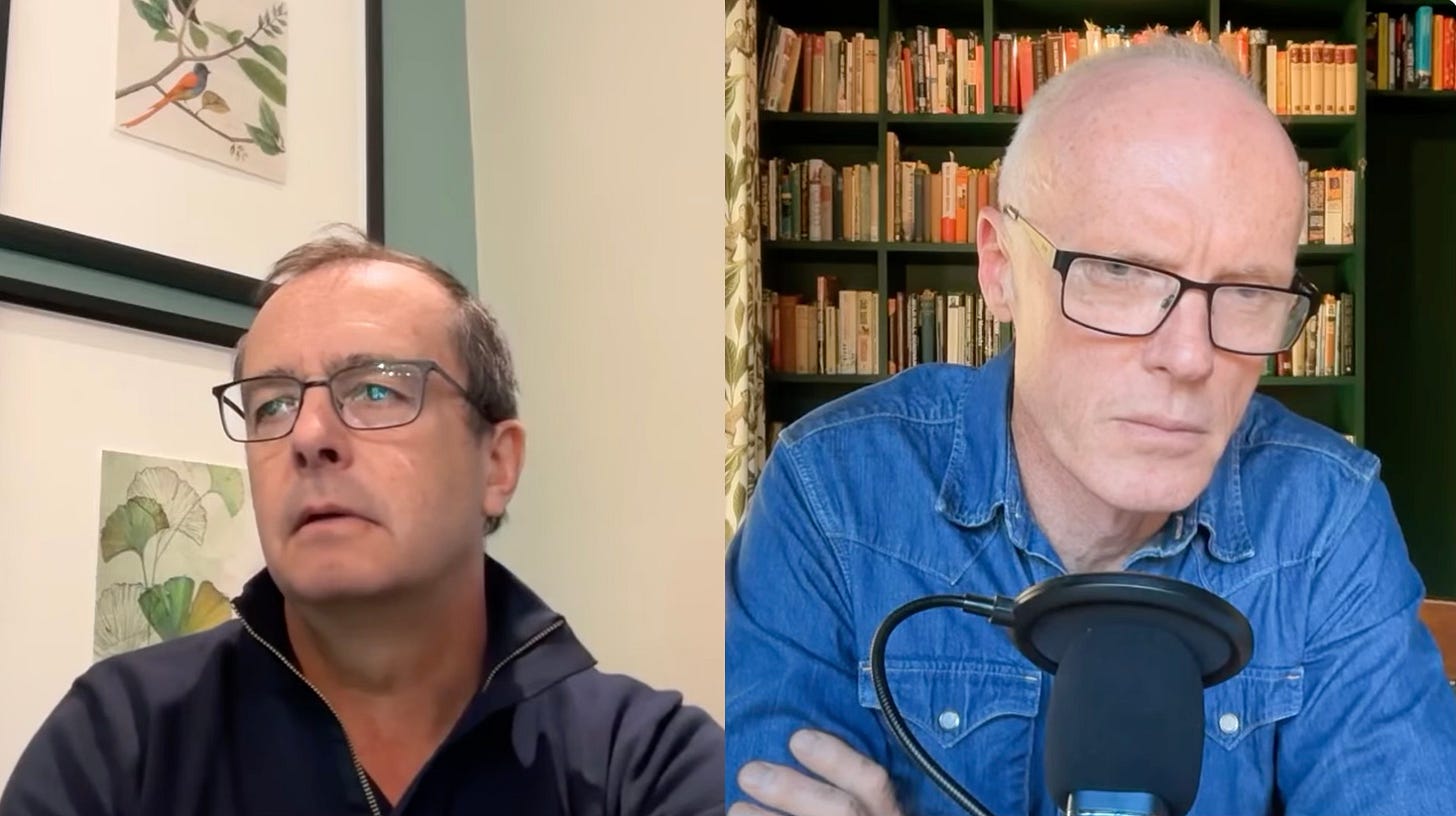The Split-Second: Lawfare, lethal choices, and the burden we put on soldiers
An unflinching hour with Col. Richard Williams, former commander of the SAS. How politics and lawfare is killing capacity for defence in the UK.
If you care about how Britain fights — and what happens to those we send to do it — listen to the Tom Petch Podcast, which shares a rare, plain-spoken interview with Colonel Richard Williams, former commander of 22 SAS.
This isn’t PR or nostalgia. It examines how lawfare — the legal, political, and media pressures applied long after action — constrains the UK’s ability to act in war and crisis, and leaves a lifelong legal burden for those who followed orders.
“We call it lawfare because the impact of it could have a material impact on our ability to defend ourselves,” says Williams.
Across Afghanistan, Iraq and Northern Ireland, Williams describes split-second decisions in smoke-filled rooms and why disabling precise raids leaves committees with just one “clean” option far from the blast: “The alternative… was to simply bomb the target and kill everybody that was there… bombing… does kill children, women, innocents.”
He is just as blunt about political cover.
“No minister of state will ever appear as witness for your defence… They never do… So you own the outcome,” says Williams.
And on the basic moral charge: “Are we the evil? I don’t think so….We go out to deny evil the ability to hurt us.”
“Any SAS man, any human, any human, anyone with any sense of compassion or responsibility, would, if they were prepared to take the risk with their own lives, prefer to do the alternative, which is to enter that stronghold and take these bastards alive and pull them out and not kill or hurt the innocents that are around them.”
Host Tom Petch keeps it tight: ethics of lethal force, rules, and scrutiny. This isn’t hero worship. It’s a needed airing of facts, trade-offs and consequences that polite debate avoids.
Why this matters
If you stop raids, you get collateral damage. If you discourage operators who risk themselves to detain targets and gather intelligence, you do not get mercy; you get drones and airstrikes. Everyone knows what that means for civilians.
Retrospective inquiries judge split-second decisions made by men being shot at, using standards written decades later by people who weren’t there. This disconnect leads to unjust scrutiny of those acts, eroding trust and morale among the judged.
Britain’s stance signals to recruits and allies: if those sent into danger are not supported or defended afterwards, top talent may decline to serve, and allies may hesitate to cooperate. This erodes our future capability and trust.
The Tom Petch Podcast is an independent, long-form series hosted by Tom Petch, a former Special Forces officer turned filmmaker and journalist. Each week: moral, legal and political dimensions of national security, democracy and public life — without theatrics, without spin.
Listen to Williams’ full interview on the Tom Petch Podcast:
Or watch here:



This woman - The so-called veterans minister, is a complete disgrace to the uniform she once wore. Naive, and completely out of touch with reality. She doesn't have an understanding of terrorism, or Indeed no insight into the terrorist mind! These people do not deserve any human right. Because they operate below the level of humanity! They are not "freedom fighters, or soldiers! They are worse than criminals. They have torn Northern Ireland apart and tried to destroy and divide the people with fear, sectarianism - thus, preventing communities coming together, working together, to promote peace, unity and prosperity. All soldiers both men and women are special! Those who have served in Northern Ireland, prevented the country from failing its people.Great sacrifices were made, to establish a platform of peaceful coexistence between communities. And give the country and it's people a chance to heal! This current Government , need to show strength, leadership and determination in giving total support to the veterans that they are hounding! You! The Government of the United Kingdom. Are eroding the faith and trust of your military establishment. The very people that you depend on, to keep you, your citizens and your country safe!
The people who should be hauled before the Court are Blair and Starmer. Blair, with others, took the plaudits for the peace deal in Northern Ireland but none of the blame. The IRA were given Letters of Comfort after the atrocities they carried out. This was capitulation.
Starmer and his unintelligent government for perpetuating this cruelty against our brave and heroic military, who after all were carrying out orders to defend this Country. Stop inflicting this unnecessary cruelty upon our Veterans and let them live in peace.